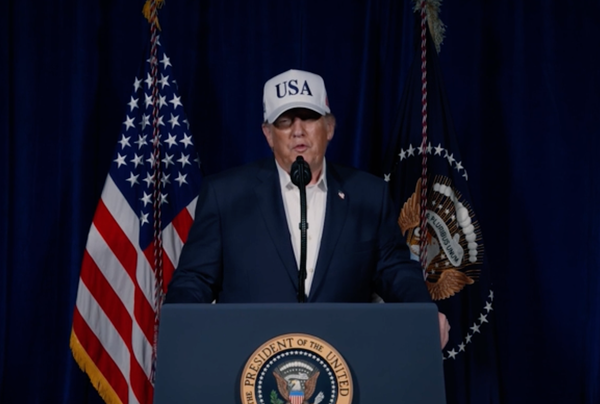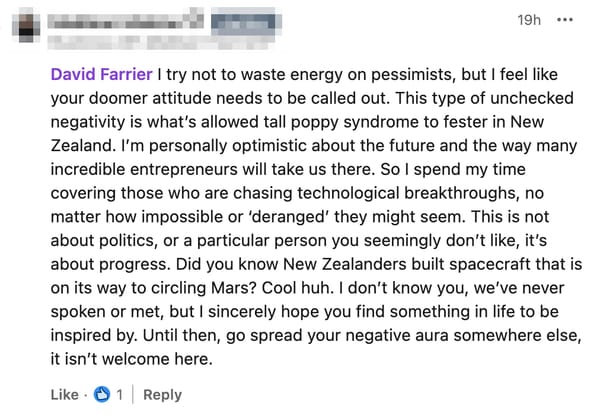I Hope I Never Send This Webworm
“I’m going to use a high-falutin legal term here: I am freaked out.”
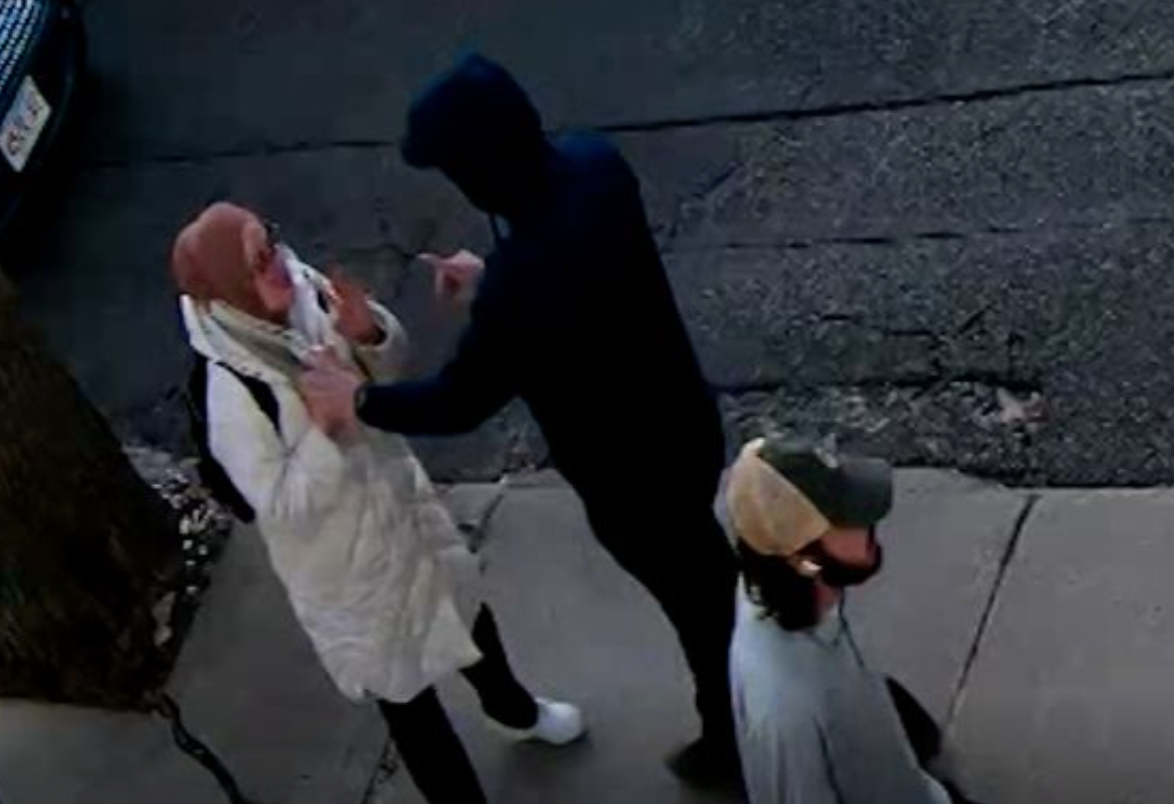
Hi,
I’ve been imagining a scenario where I am walking along the pavement in the United States. It’s dusk, I am off to get a giant dripping burrito from my favourite place, and I see three men in hoodies approaching.
Anther two men appear from around a corner, and this whole thing feels bad, and I realise I have about 3-5 seconds to communicate what’s happening to my readers, friends and loved ones before someone grabs my hands, yanks my phone away, and throws me in the back of a van.
If this was a few years ago, I’d probably text a friend or send a tweet. Today, I realise that’s too slow. And so in the backend of Webworm, I have created a draft and created a shortcut to that draft, so in about 3-5 seconds I am pretty confident I can blast out an email with this subject line:
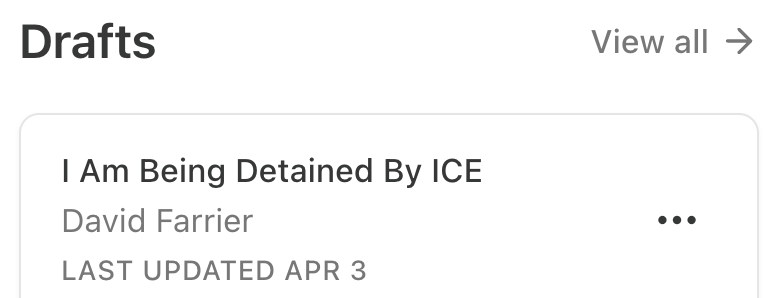
Assuming my fingers move fast enough, it goes to you, which means it also goes to my family and my friends and my lawyer. I guess this will be the one newsletter that’s a true test of who in my life reads this fucking thing.
“Stop being so dramatic David, you’re white, you’re fine,” I hear you say. I hear myself say it, too. I’ve been saying it to myself again and again. I get it.
Stick with me.
Back on March 20th, I briefly touched on how unusual it is to be doing any kind of journalism in the US right now — citing the case of Mahmoud Khalil, who’s sitting in an immigration jail in Louisiana.
Since then, things have gotten much worse. We have a string of cases of people legally residing in the US on visas and green cards being kidnapped in the street, grabbed by men in hoodies and thrown into unmarked SUVS.
Their “crimes” mostly involve talking out about Palestine.

30-year-old Rümeysa Öztürk (in the United States legally) was making her way to meet her friends for dinner, when six officers jumped her, refusing to show any identification until she was trapped. It’s terrifying footage to watch, and begs the question of what you’re meant to do when you see a woman being bundled into a van in America.
If you’re Johns Hopkins University, you put out a memo saying you should never intervene. Let them be taken.
It instructs employees not to obstruct the officers’ activities or block their movement in any facility. Additionally, employees are instructed not to notify the person who is being sought by federal law enforcement officials.
On Tuesday, the weekly podcast I make focussed on this string of deportations. We discussed my history of writing a lot of negative things about Donald Trump and Elon Musk, and my very clear thoughts on the genocide in Gaza
a) Existing
b) Being very, very bad.
My producer Rob questioned whether doing this episode was a good idea (it goes pretty widely these days, which is nice, but also a bit scary). He was being protective of me, essentially asking if I was shooting myself in the foot, creating an excess risk of being detained myself when leaving and entering the United States for work.
My answer was — if that happens, so be it. That’s absolutely not a reason to shut up. I am glad we had the conversation — and I am glad we aired the episode.
Some people liked it. Others didn’t.


But before we get too dramatic about this, back to my initial point: I am deeply aware that I am a privileged white man — a sort of get-out-of-jail free card for the last few thousand years or so.
So this morning I called Greg Lukianoff, the president of FIRE (the Foundation for Individual Rights and Expression) who was in Washington, DC.
FIRE is a First Amendment legal advocacy group that’s been involved in Mahmoud Khalil’s case at Columbia, and also just successfully represented a student group for its right to produce a drag show in Texas.

I opened by telling Greg a little about my work here on Webworm, before saying: “It’s a bit of a unique time to be here on a Visa — but I am white, so I’m probably fine.”
“I wouldn’t count on that,” he replied. “I’m going to use a high-falutin legal term here: I am freaked out.”
And when he said “I”, he was kinda referring to himself. He went on:
One of the things that I think a lot of people don’t quite get is how serious the attack on law firms are, and how bizarre the justifications are — and some of the powers that Trump is using in executive orders.
He [Trump] is going after, overwhelmingly, law firms that participated in what they call “lawfare” against Trump. They’re going after some of the [lawyers] who were involved in some of January 6 prosecutions and some of the attempts to get the 2020 election overturned.
It’s unprecedented to have a President punishing a law firm with threats of removing your security clearance, which makes it essentially impossible for a lot of lawyers in DC to actually do their jobs, but even more troublingly your ability to enter federal buildings — which of course, includes courts.
And I really want to pause on that.
Some of the stuff that they’re going after originally was like going after the people who went after Trump for a variety of offenses.
But they even have extended to using the justification of saying, “You opposed us in court on affirmative action” and it’s like: “So wait, you’re saying that law firms that opposed your administration’s policies can’t enter court unless they either pay you a tonne of money, or agree to give you hundreds of millions of dollars of pro bono work?”
And here’s an important thing, too: We’re in court against Trump right now. And we’re just a medium-sized nonprofit. And we’re like, “Wow, when is our turn coming up?”
From there, I asked him about Columbia student Mahmoud Khalil.
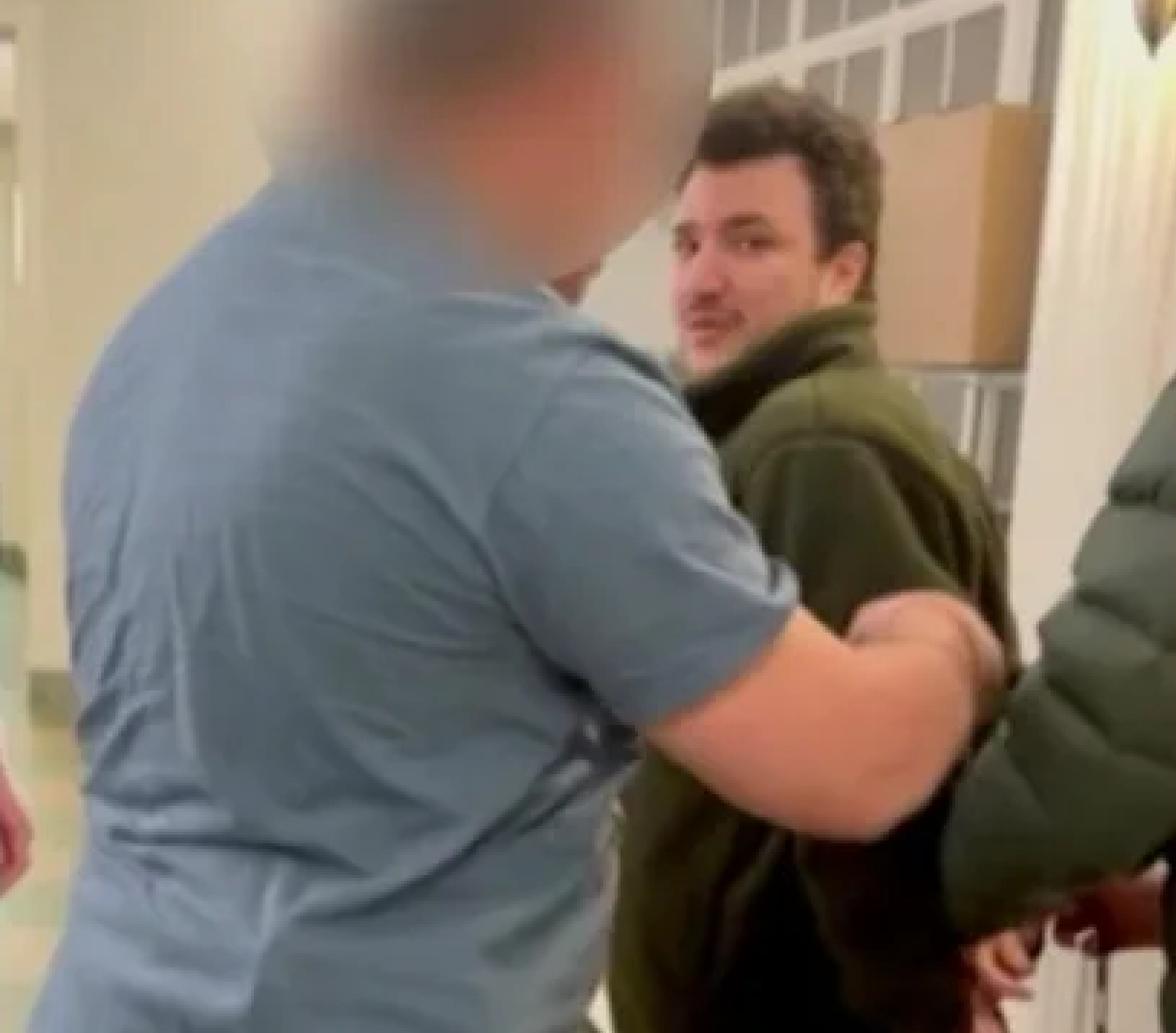
Mahmoud Khalil was arrested — and they tried to immediately get him to Louisiana, which is a more favorable legal forum where the Trump administration thinks it can get away with anything.
And when it first happened, I was like, “Oh man, are they going to say he was involved in some actual criminal behavior?” And when they started having press conferences about it, they were citing flyers.
First of all… you’re not even saying he handed these out?! Like, this guy [Khalil] was actually someone who the administration even trusted enough that he was a negotiator with the students.
And there was a little bit of like, “Okay, well you certainly can’t kick him out just for being roughly in proximity to flyers, that’s ridiculous. But maybe something worse will come out at some point.”
Nothing worse has come out.
So this case is one of those ones that just seems to get more and more troubling. And here’s the thing: Even if you don’t care about Khalil, even if you don’t like the pro-Palestinian protesters, I want to caution everybody here because the power that the Government is using is this provision that gives the Secretary of State personal authority to kick you out of the country — even if you're even if you’re on a green card — if you are found to have “an adverse effect on foreign policy.”
First of all, the idea Khalil is creating some kind of international incident for us is ridiculous — but also it’s this vast power.
And here's the punchline.
This policy has been challenged exactly once in court. And it was ruled to be unconstitutional on its face (because it gave the Secretary of State too much power) by Trump’s sister!
She’s a departed judge, she died a couple of years ago, but Trump’s sister found this to be ridiculous — that this was way too much for the Secretary of State to have.
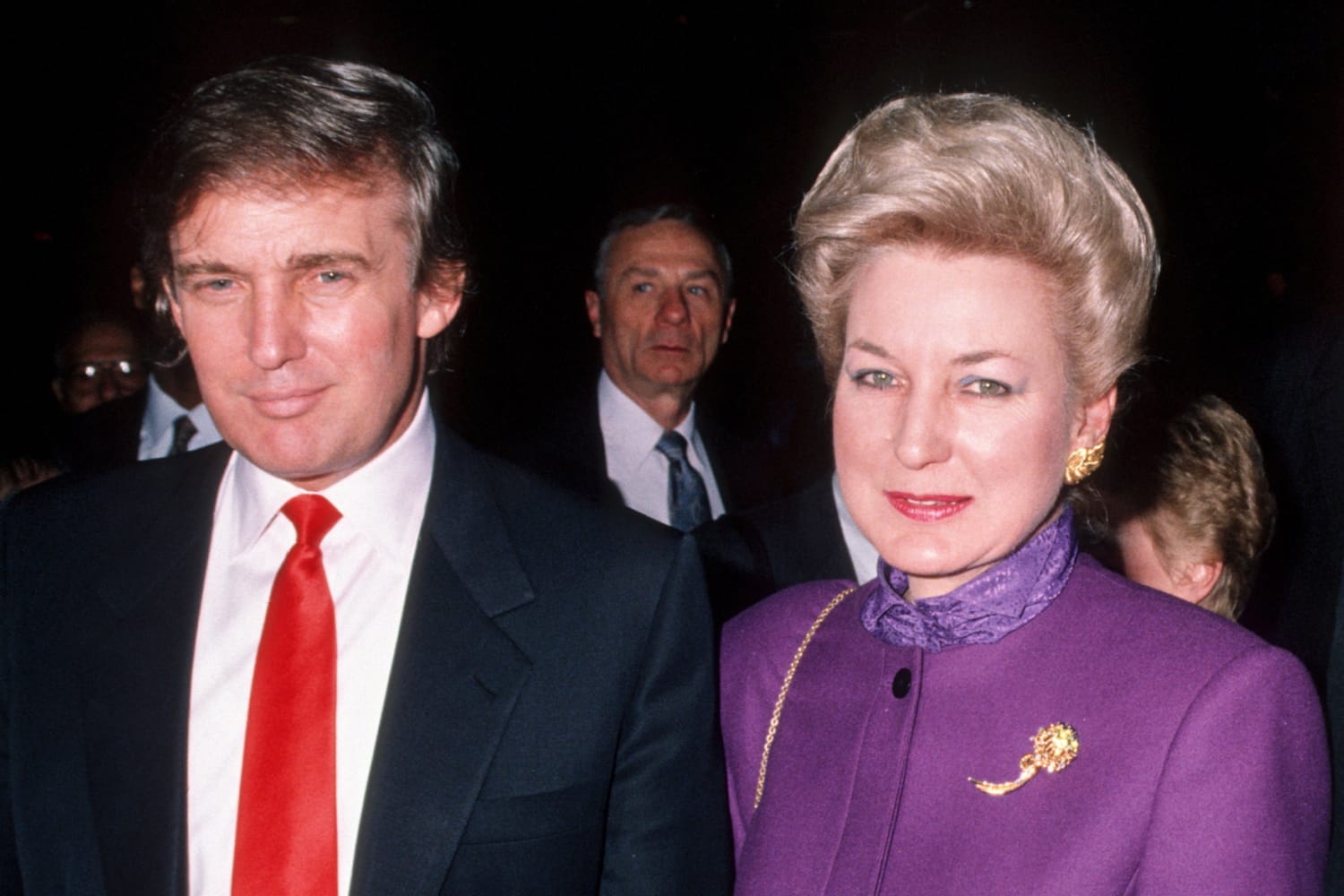
So it is even worse than I had feared. And that brings me to the Tufts [Rümeysa Öztürk] case. Like, the only thing that to our knowledge they have on this young woman is that she wrote an op-ed, saying that Tuft should divest from Israel.
Now there’s going to be a hearing soon. Maybe they’ll reveal that, you know, she tried to blow up the sun or something. But so far all we know is that it’s based on an op-ed.
An excellent op-ed you should read, by the way, as Rümeysa Öztürk sits in ICE custody in Louisiana awaiting trial.
Towards the end of my conversation with Greg, I went back to my original, selfish point: Me. The main character in my own fumbling, weird life.
“For someone like me who is pretty white and privileged and spouts off on the internet all the time,” I said, “How worried should I be coming in and out of the United States? Should I be deleting my social media apps, or are the chances of anything happening just so low? Like, who gives a shit about me?”
He paused.
Well, first of all, the idea that being white or privileged is going to protect you in this is, I think, misguided.
And I think that there is real reason to worry. But if you need help, you definitely let FIRE know. We’re not immigration lawyers, but we’re having to brush up a lot on that lately.
And I think that everybody should be worried. I mean, I’m going to — this sounds like a not so humble brag —I’m going to Vancouver next week to give a Ted Talk, and there are a couple of people I'm speaking with who are also here on green cards, who are quite critical of the government — and they’re a little they’re all a little spooked. And I’d like to say, “Oh, that's ridiculous.”
But I can’t really say that.
I am in the US right now for a few key reasons:
- I am deeply curious and horrified by what’s going on, and I want to witness and document things first hand. Not to be too pretentious or worthy, I think that’s part of my job, and right now — with no dependents — I feel I am well placed to do that.
- Friends that I love.
- I find a slight step of distance good when writing about certain New Zealand topics — the Arise church stuff, Zuru, gurus.
- I have other work here I enjoy. I like making Flightless Bird. I am excited about doing live shows in places like San Francisco and Portland soon. For those screaming at me about Dark Tourist Season 2 (not happening) I have some documentary and TV ideas I’m fumbling away at (it never gets easier, it’s always hard, but you’ve got to at least try).
- The squirrels, the raccoons, the opossums.
And if something I write passionately about sees me thrown into the back of a van, so be it. I just hope I fumble a few swipes and taps in time to send this:

Instantly, you’ll know what’s going on, and I guess the lawyer who helps me from time to time gets to work, and maybe they’ll reach out to FIRE who I’m now (gratefully) in touch with. The company that powers this newsletter has a relationship with them, too.
Eventually, I’d end up back in New Zealand, unable to return to this weird fuckin’ place.
A place Greg described like this:
You know, it’s one of these things where as an advocate you want to stay measured, particularly when you know things potentially could get worse — because you don't want to say, “This is the worst day in history,” and then the next day say it’s even worse.
But it’s bad.
When you look at the totality of things that the Trump administration is trying to pull off, it’s very concerning.
I’m in DC right now, and it’s worrisome. And I think it’s going to get worse.
David.
Greg Lukianoff co-authored The Coddling of the American Mind with Jonathan Haidt in 2018, and his latest — The Canceling of the American Mind — is out April 29.
Thanks for supporting this weird, strange newsletter I’ve been writing for four years now. It means a lot.

